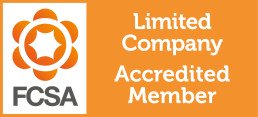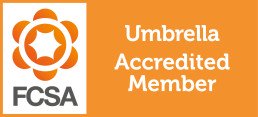Share this article

The 2021/22 tax year began on the 6th of April 2021, and there are a few personal and business tax changes you should be aware of. Our short guide will provide you with an overview of some of the changes you can expect to see this tax year.
Personal Tax Allowances and Thresholds
The Personal Allowance – the amount you can earn before Income Tax is due – is increasing to £12,570 for the 2021/22 tax year. The threshold will remain frozen from 2022 until 2026. The higher rate threshold has also increased from £50,000 to £50,270 and will remain frozen until 2026. This means that workers will earn a greater amount before Income Tax is due.
The Income Tax bands for the 2021/22 tax year are as follows:
- Basic rate – 20% on income between £12,571 and £50,270 (you pay tax on £37,700)
- Higher rate – 40% on income between £50,271 and £150,000
- Additional rate – 45% on income above £150,000
Please be aware the Income Tax rate thresholds for Scotland are different.
Minimum and Living Wage amounts
Effective from April 2021, there are increases in the minimum wages you must pay to employees. The National Living Wage has also been extended to 23 and 24-year-olds for the first time. Previously it was limited to those aged 25 and older. The minimum and living wage changes are as follows:
- National Living Wage (for people aged 23 and over) – £8.91
- National Minimum Wage for people aged 21 to 22 – £8.36
- National Minimum Wage for people aged 18 to 20 – £6.56
- National Minimum Wage for people under 18 – £4.62
- The apprenticeship rate for people aged 19 or under or those over this age in the first year of their apprenticeship – £4.30
National Insurance Contributions
Class 1 National Insurance Contributions
The secondary threshold for employer National Insurance Contributions (NICs) has increased from £8,788 to £8,840 per year for the 2021/22 tax year. Employer NICs are due on salary payments above this threshold and are taxed at 13.8%.
Employee NICs are also increasing for the 2021/22 tax year. Employers NICs are due on any earnings between £184 – £967 per week (£9,568 and £50,270 annually) at a rate of 12%. Any earnings above £967 per week are taxed at a rate of 2%.
Class 2 National Insurance Contributions
The Class 2 National Insurance threshold has also increased from £6,475 to £6,515 for the 2021/22 tax year. Class 2 National Insurance is due if your profits are between £6,515 and £9,568 and are payable at a rate of £3.05 per week.
Class 4 National Insurance Contributions
The Class 4 National Insurance lower profits limit threshold is increasing from £9,500 to £9,568 and will be taxed at 9%. The upper profits limit also increases from £50,000 to £50,270 and is taxed at a lower rate of 2%.
Savings Threshold
As of the 6th of April 2021, the personal savings allowance threshold has also increased. Individuals who earn up to £12,570 can benefit from up to £5,000 in interest on savings without paying tax. Savers will also not be subject to the higher rate taxpayer threshold until they earn a minimum of £50,271. Individuals using ISA’s will also see their tax-free ISA allowance reset for the new tax year. The tax-free ISA allowance will remain at £20,000 and the Junior ISA allowance at £9,000.
Corporation Tax
There is no increase in Corporation Tax for the 2021/22 tax year. However, from April 2023, Corporation Tax will rise for the first time since 1974. A new 25% Corporation Tax rate will be due on profits over the upper profits threshold of £250,000. The current 19% Corporation Tax rate will apply to companies with profits under £50,000, and this will be known as the small profits rate. There will also be a new tiered system for companies with profits between £50,000 and £250,000.
Capital Allowances
Companies investing in qualifying new plant and machinery assets can benefit from a new super-deduction Capital Allowance that can be used between the 1st of April 2021 and the 31st of March 2023. The new super-deduction is set at 130% and allows companies to claim back the cost as a first-year Capital Allowance, plus an additional 30% on top of that. Investing companies can also take advantage of another Capital Allowance measure that allows them to benefit from a 50% first-year allowance for qualifying special rate assets.
Coronavirus Tax measures
As part of the government measures introduced to support businesses during the coronavirus pandemic was the reduced rate of VAT for businesses in the hospitality sector. The reduced rate of 5% was introduced back in July 2020 and was due to end on the 31st of March 2021. However, it has since been extended until the 30th of September 2021. From September 2021, a new rate of 12.5% will be applied until the 31st of March 2022. The usual 20% will resume after this date.
There are also reductions to the flat rate VAT scheme in the hospitality sector, which are as follows:
- Pubs – 1% until the 30th of September 2021 and 4% until the 31st of March 2022
- Hotel and accommodation – 0% until the 30th of September 2021 and 5.5% until the 31st of March 2022
- Catering services – 4.5% until the 30th of September 2021 and 8.5% until the 31st of March 2022
Stamp Duty Land Tax holiday extended
The stamp duty holiday, which was due to end on the 31st of March, was extended until the 30th of June 2021. If you are considering buying a property, they’ll be no stamp duty due on the first £500,000 on a purchase until the end of June and on the first £250,000 until the 30th of September 2021.
IR35
The off-payroll working rules – known as IR35 – were initially due to change in April 2020, but the government delayed reform by a year because of the pandemic. The changes (implemented on the 6th of April 2021) mean that contractors and freelancers who work for medium and large private sector clients will no longer be responsible for determining their employment status for tax (IR35 status). Instead, the responsibility falls to the end-client.
For more information about off-payroll legislation and your payroll options, please arrange a call with our expert team.
Churchill Knight & Associates can offer tailored tax planning and advice
Churchill Knight & Associates Ltd has a range of inclusive contractor accountancy services, including business tax planning and advice tailored to your circumstances and goals. If you would like more information about our limited company packages, please speak to one of our expert consultants on 01707 8716212.
About Churchill Knight
Founded by an IT Contractor in 1998, Churchill Knight has become one of the most respected contractor accountants in the UK. We’ve helped over 20,000 contractors with their accountancy requirements. As well as our accountancy services, we also have an industry-leading PAYE umbrella company and dedicated in-house personal tax department. Whichever service you choose, you can move forward with complete peace of mind. We are proud of the reputation we’ve built over the years, and our FCSA accreditation proves how committed we are to compliance within our sector. Keep reading…


We're regularly adding new, helpful content
The Churchill Knight blog is regularly updated with helpful content for contractors and freelancers – especially articles that answer the most frequently asked questions about umbrella companies! Please pop back shortly to see the latest articles written by Andrew Trodden (Marketing Manager) and Clare Denison (Marketing Executive).
